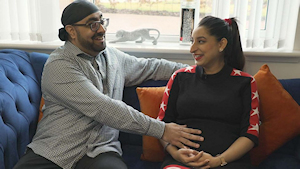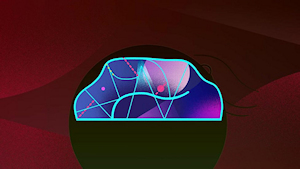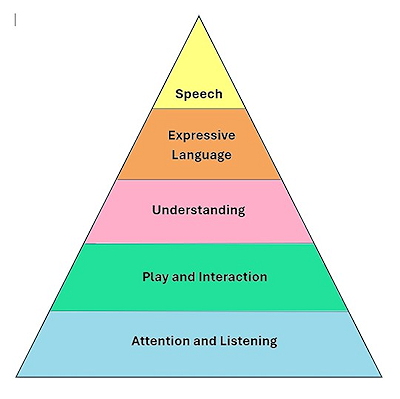The Stages of Early Communication
When does communication start?
Babies are getting ready to be communicators even before they are born. From around 18 weeks of the pregnancy, hearing starts to develop - so your child may be able to hear your heartbeat. From around 30 weeks, they may even be able to recognise your voice!
It may feel a bit strange talking to a bump! But this is a perfect time to start talking to your baby. They won’t understand what you’re saying yet but they are taking notice of your voice, rhythm and pitch. Try singing some songs too.

Take a look at this video from Tiny Happy People for more information and ideas for how to start developing your child’s communication skills before they are even born:
Children’s brains go through lots of changes and developments, particularly in the first 2 years, so it’s never too early to start talking with your child. Children make connections in their brain (“neural connections”) in response to things they see, hear and experience and they learn spoken language by hearing the words for those things at the same time.

This short video from Tiny Happy People explains more about how children make these neural connections:
What are pre-verbal skills?
Your child may not be using words but there are lots of other ways they may be communicating with you:
- Crying
- Cooing and babbling
- Facial expressions
- Body movements
- Looking at you
This is a great time to develop your child’s early interaction skills - pre-verbal skills that will be just as important later on for children developing their spoken language skills.

How do pre-verbal skills develop?
We often use a simple visual such as The Communication Pyramid to describe the key communication areas. Children do not work their way through these areas in a step-by-step way, becoming proficient in one area before moving onto the next. They will be gaining some skills in all areas as they go along.
But the skills at the bottom – the foundations of the pyramid – support and enhance the development of the skills that are higher up. So often we need to start by helping children develop these important foundation skills first, these ‘building blocks for language’, before working directly on a child’s spoken language or speech sounds.
First Words
Every child’s development is unique. Children typically learn the words that they hear the most and that they are motivated by – so words for food and drink often come early! You can find out more about the typical stages of speech and language development from Speech and Language UK here.
Where next?
This video from Speech and Language UK called ‘Chatter Matters’ shows a typical pattern of speech and language development for many children between 0-4 years.
Please note the relevant part of this video ends at 11 minutes and 40 seconds.
Last updated10 Sep 2025


